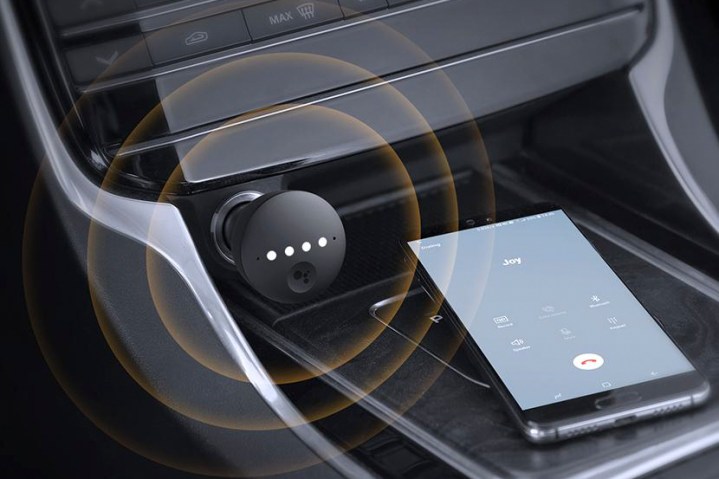
You can now take your Google Assistant out of your home and into your car with a gadget from Anker called the Roav Bolt, unveiled at CES 2019. The smart car charger will be compatible even with older car models so it can add smart features to your regular car.
With a Roav Bolt plugged in, you’ll be able to use Google Voice Assistant to answer your queries, cue up songs on your driving playlist, send SMS messages, and control your smart home devices. You could use it to wake up your smart home for when you pull into the driveway, or to change up the music in your car without taking your eyes off the road.
More CES 2019 coverage
- Our CES 2019 Hub: The latest news, hands-on reviews, and more
- C-V2X system helps cars navigate intersections, even without a line of sight
- Here are all the Google Assistant upgrades coming to your smartphone
- With new integrations, Google Assistant makes big push for dominance at CES 2019
The device looks roughly like a regular in-car cellphone charger and plugs into the 12-volt cigarette lighter port in your console. Contained within its rounded shape is a dual mic array which has advanced noise cancellation technology that should make it easier to communicate with Google Assistant via voice even if there is road noise or other background noise in the vehicle. There are also two USB posts with rapid charging features so you can still charge your phone as well as another device if you need to. And on the top of the Bolt are four LEDs in the Google Assistant colors to convey information at a glance.
As well as being a receiver for your voice commands, the Bolt can also give you proactive notifications about important events, like receiving an SMS message from a family member or a reminder that you set for yourself to pick up milk on the way home. Once the device is installed in your car you begin with saying the familiar, “Hey Google” and you can then ask a question or give a command just as you would with Google Assistant on your phone.
A big potential use of the system is for navigation, including both getting directions to your destination and getting information about current traffic or nearby gas stations, all totally hands-free so you can concentrate on driving. There’s also the option to use Assistant to play music of your choice or to tune into radio stations or play audiobooks or podcasts using your cellular data. And of course you can make calls and send messages, too.
The Roav Bolt is available for pre-order now for a reasonable $50.



